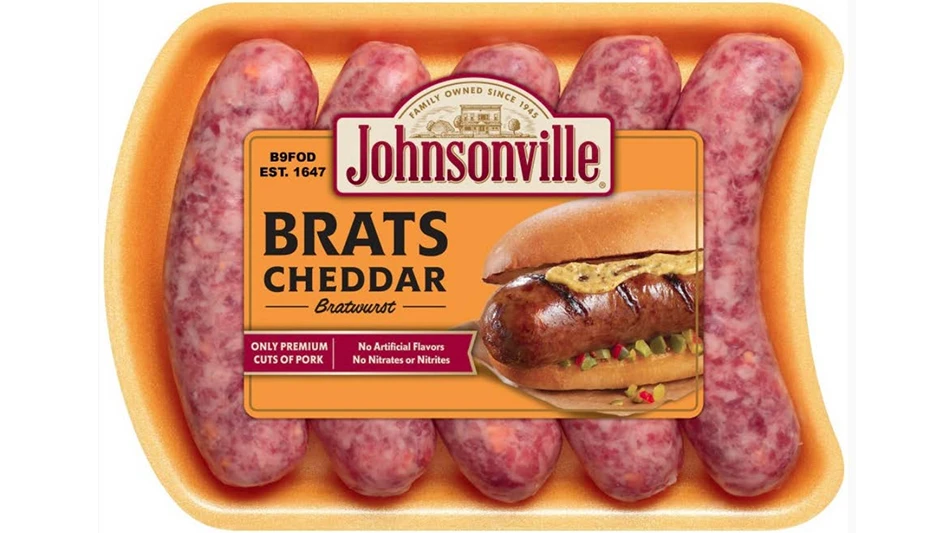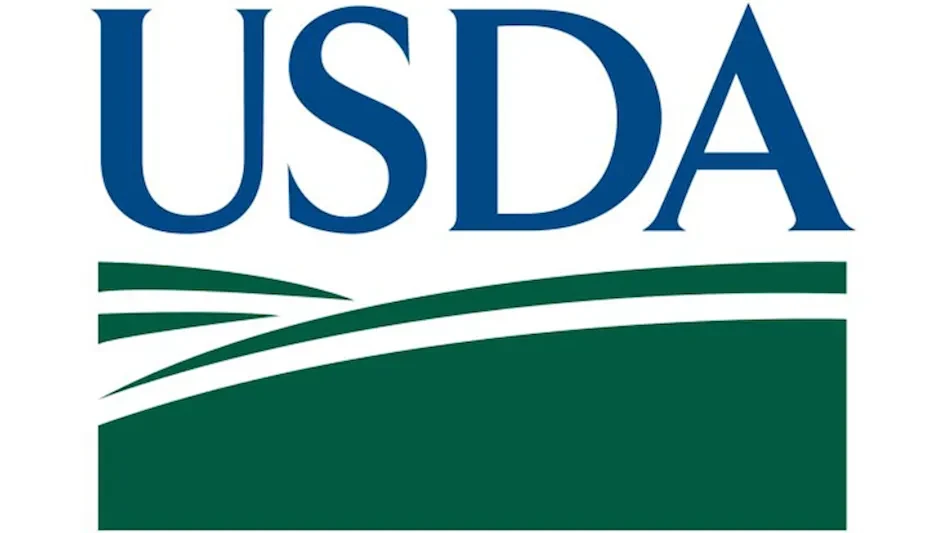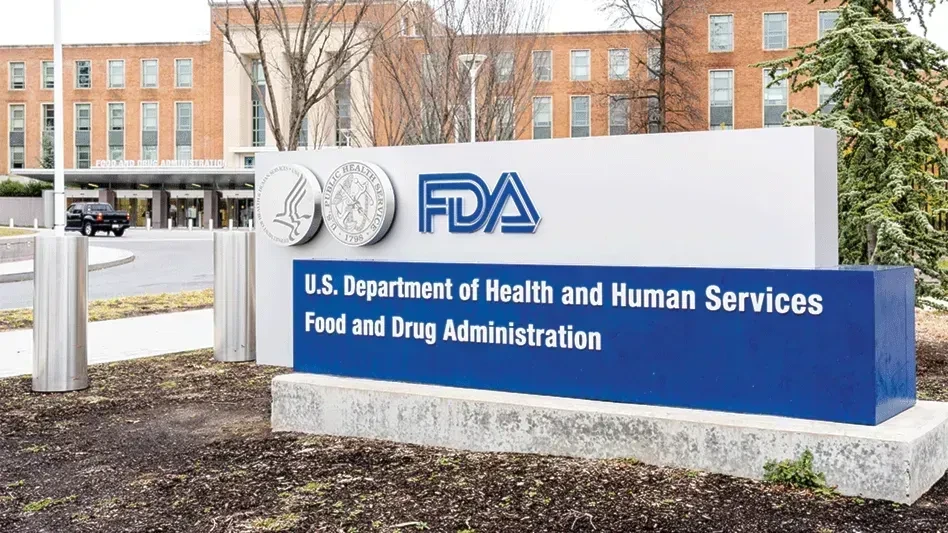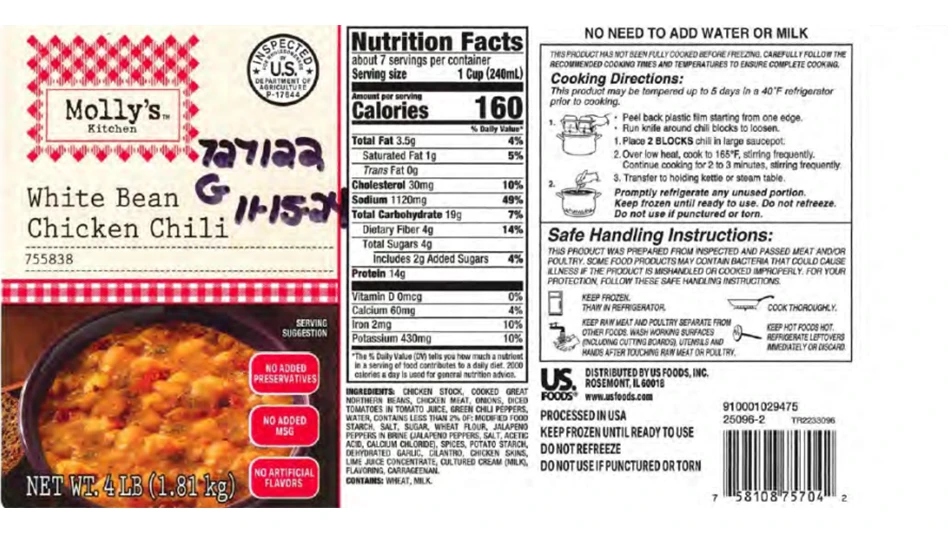 The year is 2006.
The year is 2006.
The charge is to continue to explore existing and potentially new mitigation strategies that focus on leafy greens food safety, including alternate and commercial sanitizers that could be added to wash water to reduce, or preferably eliminate, pathogens on fresh produce.
The search brings in a number of options, but none are of quite the caliber being sought by the Chiquita food safety team. The conclusion is that there is nothing in existence that meets the reduction levels the company wants for its Fresh Express greens.
Although it has reached this conclusion, it is not a result with which Chiquita/Fresh Express is happy or willing to settle. Instead, having established itself as an innovative enterprise since its first historic shipment of bananas from Jamaica to Jersey City, N.J., in 1870, Chiquita decides to again step out of the crate to take the industry’s evolution of non-competitive food safety to new levels.
Thus, Chiquita decides to convene an independent scientific advisory panel to focus on food safety of raw product. The panel is comprised of six nationally recognized food safety experts who begin meeting on a nonpaid, voluntary basis. The goal is to prioritize the most productive research related to the source, mode of action, and life cycle of E. coli O157:H7 and the potential pathogenic contamination of lettuce and leafy greens.
In evaluating the existing body of knowledge and scrutinizing the entire supply chain, the group identifies the top five critical research topics to be:
- determining the potential of E. coli O157:H7 to be internalized into the produce;
- identifying new mitigation strategies and technologies to reduce its contamination potential;
- implementing field study to identify sources, vehicles and factors that affect its degree or extent of contamination;
- determining the pathogen’s ability to multiply in the presence of normal background flora following harvest;
- determining its ability to survive composting processes.
With the priorities identified, the real task begins. Not only to perform the recommended research—but to fund it.
Dr. Michael Osterholm, panel chairman and director of the Center for Infectious Disease Research and Policy, University of Minnesota, approaches Chiquita requesting one million dollars to help fund the research.
With barely a blink of an eye, Chairman and CEO Fernando Aguirre not only responds in the affirmative, but doubles the ante and makes an unprecedented industry commitment.
$2M to Public Research.
Although the panel was convened in May 2006 prior to the September 2006 spinach E. coli outbreak, and Fresh Express product was not included in the outbreak, Aguirre pledged up to $2 million to fund research and committed to the public sharing of the multidisciplinary research which was fast-tracked for results.
“At the end of the day, our mission to provide more nutritious and safer product is bigger than we can do ourselves,” Aguirre said. “We cannot do as well on our own as by getting everyone to rally around it.”
When Chiquita acquired Fresh Express in 2005, food safety was already a priority, he said. “After making the acquisition, it provided us with another vehicle to make the food safety emphasis even stronger.” Fresh Express had a very good program that it had built through the years. “What we have done is make it more available,” Aguirre said. “FreshRinse is another way to make the industry safer.”
As good as its word, Chiquita/Fresh Express held a Fresh Produce Safety Research Conference September 11, 2008, at which the researchers presented their studies to the public at the same time Chiquita got its first glimpse of the results of its multi-million dollar investment.
Although Chiquita sponsored the research, the company was hands-off throughout the process. “We didn’t even see the research project data until it was formally presented at the industry-wide research conference,” said Director of Research and Development Diego Luzuriaga.
In fact, at this moment, competitors and non-competitors alike may very well be conducting research and product development that stem from the published research. And that, Chiquita sees as a good thing. “Research begets research—and that’s what is happening now,” said Food Safety and Microbiology Manager Courtney Parker.
“It’s all about making a bigger statement to as many people as we can,” Aguirre added. “And we can only do that by getting the entire industry to rally around.”
Ongoing Breakthroughs.
Neither the Chiquita-sponsored research nor its commitment to sharing ended with the presentation of findings. Fast forward to October 2010 with the unveiling of FreshRinse, a produce wash that combines organic acids to significantly reduce microorganisms on leafy greens. And once again, Chiquita is sharing its achievements—as it will be making the technology available for license to the entire industry.
The technology is a true breakthrough in its ability to reduce both suspended and attached pathogenic cells, impacting not only E. coli O157:H7, but also Listeria and Salmonella, with the “bonus” result of positive effects on color and quality. In addition, its ingredients are Generally Recognized as Safe (GRAS) and FDA-approved, and the rinse technology can be used on organic as well as conventional produce.
The two organic acids, each of which provides some efficacy, work together to vastly outperform each one individually. “It’s a synergistic effect where two plus two equals 22 not four,” said Vice President of Global Quality and Food Safety Mike Burness. “That was the real Aha Moment.”
FreshRinse was invented by Principal Scientist Kai-Lai Grace Ho, with support from the company’s R&D, food safety, innovations, engineering and manufacturing teams.
It was truly a team effort. “I don’t think there was one entity in the company that didn’t somehow have a hand in it,” Burness said. But from the very start, the years-long project was led by Ho, and her dedication and expertise in the lab enabled the breakthrough of the final product. “Her name is on the patent,” Burness proudly asserted. And with the exceptional bacterial kill of the product, his pride and Ho’s contagious excitement seem more than justified.
“As you venture through your studies and data, every step is exciting,” Ho said. This was particularly true when those steps and data began to show a consistent three to four log reduction in attached cells, where the general rule of thumb had always been one to two logs. “When you get three to four logs, you’re getting the Holy Grail in a sense,” she said. “And I am very excited about that!”
“I was skeptical when I saw the initial round of internal lab data,” Burness admitted. But when he saw results consistently repeated both in-house and through third-party validation, “then I got excited.”
With all tests repeated at least three times and in varying locations for validation, results remained consistent.
Added bonuses for the technology are that it aids in quality and color retention of the produce, and Ho sees potential for use for both pre- and post-harvest produce, as well as other non-produce foods.
“We are diligently generating data to substantiate that,” she said. “It is applicable to food and nonfood, living and non-living. That is fantastic.”
Development included in-house bench-top validation with surrogate strains; testing at the Fresh Express pilot plant with validation studies performed by the National Center for Food Safety and Technology (NCFST); simulation in commercial settings; and submission to peer-review journals, which is currently in progress, Ho said.
With the extensive laboratory facilities at Chiquita’s James R. Lugg Global Research & Innovation Center in Salinas, Calif., along with its pilot plant with full processing capabilities, Ho was able to take development to its ultimate level, testing product under actual conditions rather than only through test-tube lab studies.
Tests were conducted on product in a real-plant environment under correct water temperatures and dwell time in the flume, Burness said. This not only allowed for actual condition validation but also enabled development to fit to the Fresh Express business model, rather than the other way around.
Chiquita is currently working on the licensing of the technology, and expects to have the rinse fully operational across its Fresh Express plants within the first half of this year.
Company Culture.
While this technology was a high point of the company’s food safety innovation of recent years, it is just one example of the culture that flows through Chiquita and Fresh Express. “Food safety is part of the DNA of the company,” Aguirre said.
And it is a culture driven from the top and lived out each day. “Words are just words,” Burness said. “Unless we drive this into what we do every day, it’s meaningless.”
But the executive focus on food safety is a key component of its success. “We have a direct line to the board on food safety,” Burness said. “That was Fernando’s [Aguirre] vision, and he made it happen; he drives food safety absolutely from the top. It’s not just a commitment, it’s a company-wide way we do business.”
That way of doing business got an additional nudge in late 2010, after Aguirre’s appearance on CBS’ “Undercover Boss.” (See “The Undercover Boss,” page 21.) In a non-aired segment, Aguirre met with an employee who works in food safety. In recognition of her commitment, Chiquita is not only paying the employee’s way to complete her food safety degree, but Aguirre also began a scholarship program to be granted annually to an employee for the study of food safety and quality.
In addition, Ho’s own commitment and innovation was recognized in February when she was awarded the company’s 2010 Everest Award. The highest award granted to an employee in sales, product supply or innovation, Ho was recognized as “the person who had the most significant contribution of the previous year,” Aguirre said. “She is just a terrific individual who has been so focused on the area.”
A History of Innovation.
“Fresh Express has a long history of innovation,” Parker said. And, historically, this innovation has been not just for the benefit of the company, but has included external commitments such as partnering with growers on equipment and process development to improve their own processes.
“We totally support that,” Burness said. “Anything that can be used to improve food safety and quality in the industry—that’s a good thing.”
“We believe in a science-based approach to food safety innovation,” Burness said. Innovation—in product, ideas, and processes—is derived from science, then continuously updated as more is learned. “We know we don’t know it all and we like to get smarter. We reach outside ourselves and try to learn from what others do and have seen.” This means staying informed on all industry aspects, even those which may seem unrelated to fresh produce.
Along with regular meetings, the company’s food safety team gets together when other companies have failures to see what it can learn from them—whether that company processes fresh produce, peanuts or chocolate.
And it goes well beyond the food safety team. “Food safety is not just our role,” said Global Director of Food Safety Joan Rosen. “Everyone in the company has a role to play in food safety.”
It is an approach that extends from pre-seeding to shelf. With a thick binder filled with standards for integrated Good Agriculture Practices (GAPs), Fresh Express standards exceed federal and industry standards, and were, in fact, in place well before those of the Leafy Green Marketing Agreement (LGMA).
“We go into every field multiple times before the product goes into the ground,” said Raw Product Food Safety Manager Sharan Lanini. Even with the company’s policy against any spot purchases, as it sources produce only from its approved suppliers, going into every field means pre-approving, training, auditing and tracking more than 200,000 acres of field.
Industry Recognition.
Chiquita’s commitment has not gone unrecognized in the industry. In 2010, Fresh Express received the International Association for Food Protection (IAFP) Black Pearl Award of Corporate Excellence in Food Protection and Quality.
In recognition of a company’s efforts in advancing food safety and quality, the Black Pearl was awarded to Fresh Express for its “adherence to the highest standards of excellence in food protection, for its innovative leadership in prevention-based food safety practices, for its exceptional educational activities and for fostering a culture that is dedicated to continually furthering the principles and goals of outstanding food safety.”
Having received the award prior to its FreshRinse debut, receipt of the Black Pearl provides testament to the company’s over-arching commitment. In addition to meeting food safety criteria by which the award is judged, IAFP specifically noted Fresh Express’ “7 Steps of Prevention” Food Safety Program, a synchronized set of proprietary food safety practices that apply across the entire supply chain from seed development, growing and harvesting to manufacturing and delivery to customers, and its invention of the Keep Crisp Bag, through which the company pioneered the retail packaged salad category in the early 1980s and was the first to make them available to grocery stores nationwide.
Raising the bar.
With such a history of and recognition in innovation and food safety efforts, the sharing of science and research by Chiquita/Fresh Express is simply a representation of the company’s culture and way of doing business. “It’s an opportunity to again raise the bar for all of produce,” Burness said. “An issue in the industry is an issue for us.”
“It has become the seed money for a lot of research.” Ho added. “It feels good to work for the benefit of everyone and not just your own company.
“We are making a footprint and creating a milestone for the industry.”
| UNDERCOVER BOSS Allowing TV cameras into its operations entailed some risk, but Chiquita Chairman and CEO Fernando Aguirre saw the chance to appear on CBS’ Undercover Boss as an opportunity for complete, public transparency of its processes and practices. The show, which aired October 31, 2010, entailed the transformation of Aguirre into out-of-work immigrant “Manuel Gonzales,” who is being tested and trained into various jobs, including field lettuce coring, forklift driving, and dispatch. Once Chiquita agreed to allow the station into its operations, the producers held full control. Chiquita did not choose the employees with whom Aguirre would work, nor did it have editing rights or even preview of the show. “Everything was planned by somebody else. I was thrown into situations I’ve never been in before,” Aguirre said. “CBS had carte blanche to pick the employees,” he said. “I was told each morning who I would be with and what I would be doing.” Although he had no control, Aguirre said he was very impressed by the show’s producers and staff. “They were very professional.” Risk and Benefit. Taking the risk, he said, “paid off,” not only in that which was put out to the public but in what Aguirre himself learned about his company. When he visits a plant as CEO, everything is pre-planned and prepared for him. “It is very difficult to see what is reality,” he said. But when he went in as Manuel, he was able to see the workers in an unfiltered, natural environment. And it was an environment he was happy to see. “One thing that was very positive was the passion the people had for their jobs and the company,” he said. “It came across that they had great commitment to food safety and quality.” Since then, Aguirre has made a point of showing up at company facilities and meetings unannounced. The company also received a lot of positive reaction to the show, both externally and internally. “Our employee base feels very good,” he said. “I have been very pleased to see that our employees have been very positively influenced by the program.” At least part of which was due, no doubt, to the rewards vested on those with whom he worked. At the end of the aired segment, Aguirre brought each worker into his Cincinnati office to reveal himself as “Manuel.” He commended them on their work and commitment and provided each with very individual remuneration—from one employee’s further training and mentoring and a college fund for his children to a donation to the SPCA and installation of an elevator for another. “It was the only thing about the show that I had time to plan,” Aguirre said. “For me that was the highlight of the show, to be able to recognize these people.” And it is an aspect that he is carrying forward to all employees through programs such as Chairman’s Awards and Live Chiquita. “I would recommend that others do the show,” Aguirre said. “If you have been approached, definitely do it. It is certainly worth doing, but you have to give 100 percent.” |
Extras
Click Here to see Chiquita’s History of Innovation Timeline from its first banana shipment to its 2010 Black Pearl Award.
More on the Fresh Express “7 Steps of Prevention” Food Safety Program http://www.freshexpress.com/our-promise/food-safety.
Articles from the Center for Infectious Disease Research & Policy on the research and results: http://www.cidrap.umn.edu/cidrap/content/fs/food-disease/news/sep1708produce.html.
Video of Chiquita’s Chairman and CEO Fernando Aquirre on Undercover Boss http://www.cbs.com/primetime/undercover_boss/video/.
The author is Managing Editor of QA magazine. She can be reached at llupo@giemedia.com.

Explore the April 2011 Issue
Check out more from this issue and find your next story to read.
Latest from Quality Assurance & Food Safety
- Taylor Farms Linked to Romaine E. coli Outbreak as Marler Clark Files Multiple Lawsuits Against Supplier
- IAFNS Announces Winners of Emerging Leader Awards for Food Safety, Nutrition
- FDA Shares Testing Results for PFAS in Bottled Water
- Provision Analytics Adds Food Safety Expert Jennifer Williams to Strategic Advisory Group
- Boston Sword & Tuna Protects Seafood Safety with Mettler-Toledo Metal Detectors
- IFT Releases New Resources to Aid Food and Beverage Industry in Sugar Reduction
- Yum! Brands CEO David Gibbs to Retire in 2026
- Penn State Extension Offers Short Course on Food Microbiology and Safety for Food Plant Workers






